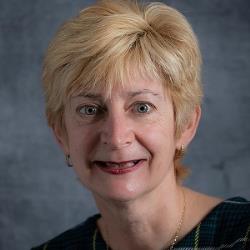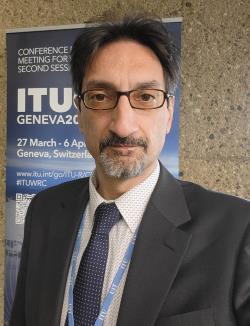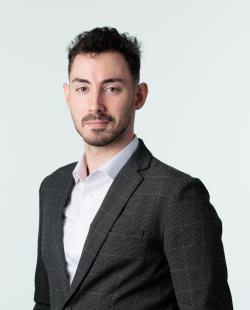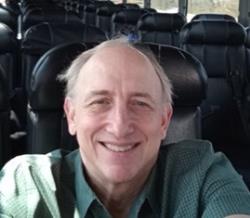Sustainable and Connected Transport - the future (virtual and physical)
University of Leicester
Session 240
You are warmly invited to join this session, which is organised and hosted by Dr Sarah Jane Fox, who will Chair a roundtable, discussion with an expert-panel who will review the vision for transport - today and beyond 2025, in terms of the compatibility to the SDGs, whilst questioning what more is needed in terms of a coordinated international approach.
Transport is an enabler, and aviation, in particular, has facilitated globalisation through the ease of connectivity. Yet, it is also contributes, negatively, to the environment. And, as such, transport can be viewed as a challenge to the SDGs, or, at the very least, represents a dichotomy to a number of the goals.
Across the globe, the drive is to achieve net-zero or low emissions, while the basis for connected cities is largely to be achieved through advancing technologies – many being based upon space technologies.
Advancing transport systems and modes invariably use connected technologies, such as global navigation satellite systems, whilst technology also seeks to partially, or completely, replace the human navigator (i.e. the pilot or driver).
Hence, whilst the pursuit for evolving transport modes is to aid sustainability goals, through the use of sustainable and modern energy, that factors in sustainable consumption which also aid to further the drive to combat climate change and its impact; and the use of technology is said to enhance safety, there, nonetheless, remains challenges and even risks associated with this approach – not least security concerns as well as equal access and social divides.

Chairperson/Convenor for this session
Dr Sarah Jane Fox is an expert/specialist across the field of transport modes and systems and has worked in government roles and consultancy across this field for over 200-years. This has included leading research and policies appertaining to sustainable and technology enhanced systems. She is presently an academic who researches across the field of law/policy and strategy for new and evolving transport. In 2015-2016 she achieved a prestigious Fulbright Commission Scholarship for research in the U.S. for 12 months, which was co-funded by Lloyd’s of London (due to the risk elements). Her specialist areas include autonomous vehicles (and she is particularly recognised across the field of advanced air mobility – UAV’s and VTOL’s) and the overlap into (connected) space technologies. Dr Fox’s research includes the conflict between safe and secure transport, and technology vs. increased risk and equal accessibility. She is the author of a vast number of peer reviewed research papers as well as industry and government reports, her latest relating to Future Flight Challenges and the policing of drones (including, Law enforcement response to drone incidents at Airports).
Dr Fox has presented her research at a number of key events including, at the European Union, the Council of Europe and at various UN organisations (including at the UN Office of Outer Space Affairs, the UN Office on Drugs and Crime and at the ITU/WSIS).
Contactable via: sjfox@hotmail.com
(or sjf48@leicester.ac.uk | SFOX20@depaul.edu

Dominic has worked on the European Union’s Galileo satellite navigation system for more than 20 years, firstly covering frequency aspects for the UK government, before moving to Brussels to work directly on the Galileo programme for the European Commission. He is now the Frequency Manager for the EU Space Programme, which includes Galileo and EGNOS, Copernicus (the EU’s Earth observation system), and the new global secure connectivity component, IRIS2. In that capacity he has worked extensively at the International Telecommunication Union, particularly on satellite navigation topics discussed at the various World Radiocommunication Conferences. Dominic has also been an active contributor to the work of the International Committee for GNSS, where he represents Galileo for the European Union. In an earlier life he designed electronic equipment for the ATLAS experiment at CERNS’s Large Hadron Collider. He holds a Masters in Spacecraft Technology and Satellite Communications from University College London.

Kamel Ghali is an automotive cybersecurity veteran of over 6 years, with extensive experience as a vehicle penetration tester, car hacking instructor, and consultant. As the Director of Event Outreach of the DEFCON Car Hacking Village and head of the Tokyo branch of the Automotive Security Research Group, he is heavily involved in the automotive security community and promotes its growth across the world. He speaks English, Arabic, Japanese, and loves to cook.

Joseph Schwieterman is a Professor in the School of Public Service and Sustainable Urban Development program at DePaul University and is the director of the university’s Chaddick Institute for Metropolitan Development, which studies public policy, transportation, and urban planning. He is the author of more than two dozen peer-reviewed articles on the development of cities and transportation. One of his more recent books is an illustrated history of planning for the Chicago region, available through Northwestern University Press. Dr. Schwieterman is the immediate past president of the Transportation Research Forum, an international organization founded in 1958 and having chapters in five cities.

Prof. Alfredo Ronchi, Secretary General - EC MEDICI framework.
Alfredo M. Ronchi is a professor at Politecnico di Milano (Engineering Faculty), an Expert/advisor in eServices, the Head of the JRC S2D2 (Safety, Security, Defence, Disaster Recovery and Management), the Secretary of the EC-MEDICI Framework of Cooperation, a delegate at UNESCO IFAP, and an active member of the WSIS since its establishment (2003).
Mr Ronchi is a member of the following Boards: Member of AI&Society board (Springer Nature), Board of Directors Global Forum (France), Member Emeritus World Summit Award Board of Directors (Austria), Board of Directors European Education New Society Association (ENSA France). Member of the Keio University NoE (Japan). Member of the Advisory Board of the School of Law under the aegis of GD Goenka University (New Delhi, India).
He has cooperated as an organizer or programme chair in W3C, ACM, IEEE, and ITU-WSIS conferences; for more than thirty-five years, he has organized and managed international projects, conferences, and workshops. He is the author/contributor of more than 400 papers and various books on e-culture, e-government, e-safety and security, and e-services.
-
 C1. The role of governments and all stakeholders in the promotion of ICTs for development
C1. The role of governments and all stakeholders in the promotion of ICTs for development
-
 C2. Information and communication infrastructure
C2. Information and communication infrastructure
-
 C5. Building confidence and security in use of ICTs
C5. Building confidence and security in use of ICTs
-
 C10. Ethical dimensions of the Information Society
C10. Ethical dimensions of the Information Society
-
 C11. International and regional cooperation
C11. International and regional cooperation
Discussion points relevant to the WSIS action line and this session:
C1: Governments are involved in formulating transport policies that are linked to technology advancements and also wider sustainability issues.
C2: By its very nature transport aids communications (either physically or virtually).
C3 & C5: There remains the need to build technology (ICT’s) into transport which aid safety but which are not susceptible to security violations that could, in an event, compromise safety. Transport modes and supporting infrastructure need to be both safe and secure for users.
C10: Utilising technology that seeks to promote safety (e.g. in personal modes) actually can lead to disparity (a digital divide) in terms of equality issues and that ultimately has ethical dimensions that need to be considered.
C11: Moving forward, further consideration may need to be given to international and regional approaches to the vision for both sustainable transport and technology enhanced modes, systems and infrastructure.
-
 Goal 3: Ensure healthy lives and promote well-being for all
Goal 3: Ensure healthy lives and promote well-being for all
-
 Goal 7: Ensure access to affordable, reliable, sustainable and modern energy for all
Goal 7: Ensure access to affordable, reliable, sustainable and modern energy for all
-
 Goal 9: Build resilient infrastructure, promote sustainable industrialization and foster innovation
Goal 9: Build resilient infrastructure, promote sustainable industrialization and foster innovation
-
 Goal 11: Make cities inclusive, safe, resilient and sustainable
Goal 11: Make cities inclusive, safe, resilient and sustainable
-
 Goal 12: Ensure sustainable consumption and production patterns
Goal 12: Ensure sustainable consumption and production patterns
-
 Goal 13: Take urgent action to combat climate change and its impacts
Goal 13: Take urgent action to combat climate change and its impacts
-
 Goal 17: Revitalize the global partnership for sustainable development
Goal 17: Revitalize the global partnership for sustainable development
Points relevant to discussions in this session are:
Goal 3: As above, that technology needs to be accessible to all as to promote equality and equity in healthy lives
Goal 7: Linked to the above, in terms of poverty, or a lack of wealth - being an inhibitor to technology enhanced personal transport systems.
Goal 9: There remains the need to build resistant technology enhanced transport systems and infrastructure that do not compromise security and hence safety to its users.
Goal 11: Transport modes operate in communities (including cities) and need to ensure safe, resilient and sustainable approaches.
Goal 12: Linking to 11 - transport needs to be sustainable and use sustainable fuels and responsible consumption that tackle (goal 13)
Goal 13: Climate change - transport needs to be mindful to/address climate change
Goal 17: Global partnerships are still an essential factor in transportation systems (particularly those that cross borders).